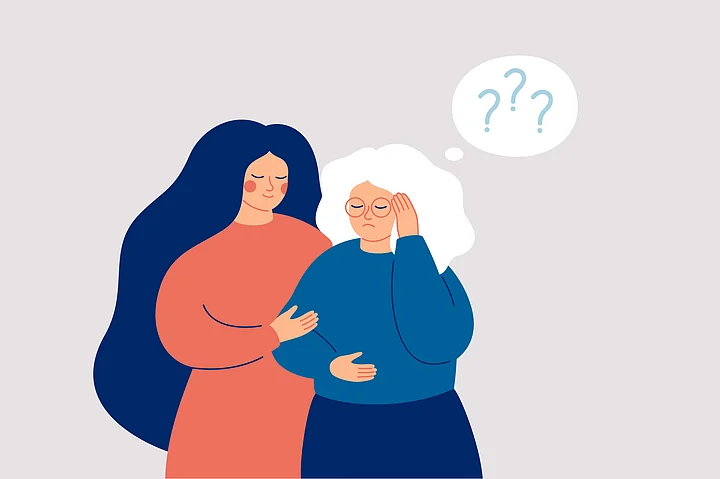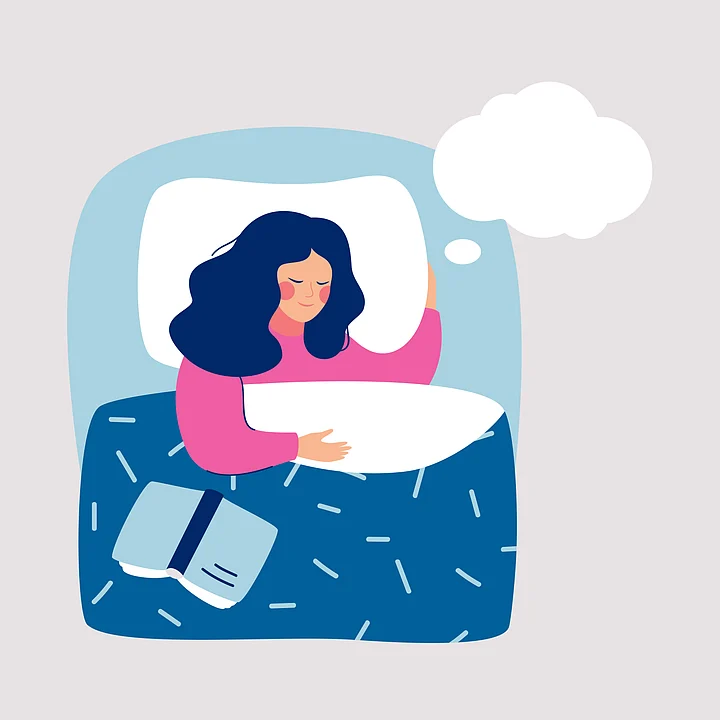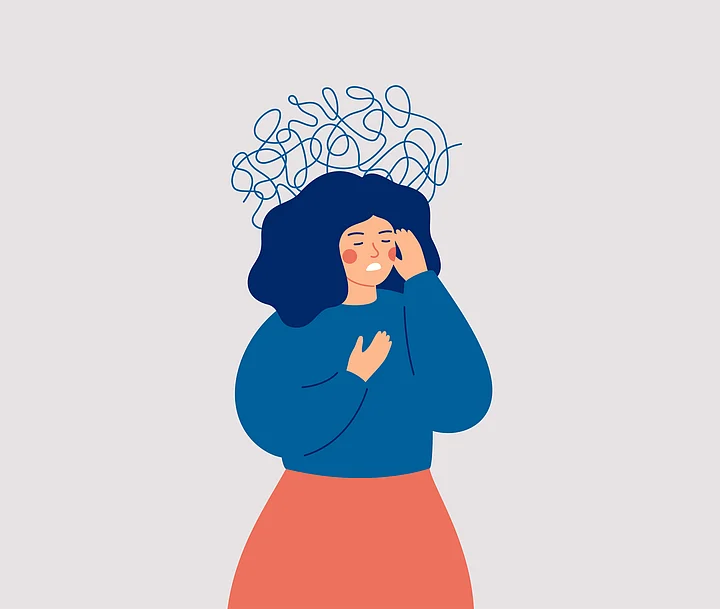(This piece was first published on 21 September 2021. It has been republished from Quint FIT's archives to mark World Alzheimer's Day.)
"Genetics is a loaded gun, but you can avoid pulling the trigger. The trigger of which is your lifestyle, which includes so many modifiable risk factors."Dr Manjari Tripathi, Professor of Neurology, AIIMS, Delhi
For years, Alzheimer's Disease was seen as an inevitable development, after all, who can fight age and genetics–the two biggest risk factors of the disease?
But an expanding body of research points to lifestyle choices in one's youth being a driving force behind the devastating illness.
Some of these connections might seem obvious. For instance, we've all heard about how doing puzzles and mind games keeps your ageing brain from dulling.
However, other risk factors, sleep and diet, are only now being unravelled by researchers.
In fact, a recent large study conducted by the US National Institute of Health (NIH) found a 60 percent reduction in risk of Alzheimer's in later years in people who stuck to 4 or 5 specific healthy behaviours in their youth.
FIT speaks to Dr Manjari Tripathi, Professor of Neurology, AIIMS, Delhi who sheds light on ongoing research exploring this link in India.
What is Alzheimer's?

Alzheimer's is a degenerative cognitive disorder that generally strikes the elderly.
(Photo: iStock)
To get you up to speed, Alzheimer’s disease is a progressive, irreversible, neurodegenerative disorder.
It usually sets in old age, but can also start showing up in earlier on.
The early signs may be negligible, like misplacing your keys, forgetting what you had for breakfast, or getting confused with familiar routes.
The illness can be devastating not only for the patient but for their caregivers and those around them, and can lead to considerable emotional distress.
The Gun and the Trigger
Research in the field has been vigorous, and although there is yet no cure or vaccine for it, more and more studies in the last few years have determined that Alzheimer's is a controllable illness.
"There are most certainly some unmodifiable risk factors like genetics and ageing that none of us can control," says Dr Tripathi. But, she says, there are also some modifiable risk factors that can be avoided or intervened to prevent or diminish the severity of the illness.
Some of these are,
Hypertension
Diabetes
Intoxication and alcohol abuse
Inactivity
A diet high in carbohydrates and trans fats
Lack of quality sleep
In the last few years, Alzheimer's in India has seen an upwards trend. Since neither genetics, not ageing are new phenomenon, to understand this recent development, researchers looked to other external causes.
It isn't a wonder that the road led them to diabetes and hypertension which are near epidemics in India.
For instance, a study conducted by Dr Rajendra Prasad hospital in Himachal Pradesh established a link between high blood pressure and low cognitive ability and Alzheimer's.
New research has also established strong links between sleep and Alzheimer's.
What Does Sleep Have to Do With Memory?

Sleep helps consolidate our memory.
(Photo: iStock)
"Sleep is a very important modifiable risk factor," says Dr Tripathi.
This is because sleep plays a major role in consolidation of our the memory we gather during our waking hours she says.
Simply put, our brain does the job of sorting, cataloguing and storing memories while we are asleep.
"Whenever you want to remember particular things like in school for instance, you read it once, then you recycle it again, maybe after half an hour you revise it again and maybe after two hours you revise it again. So what you're doing essentially is you're recycling the memory. Now, the memory which you have obtained in the daytime by this method enters the short term memory. The short term memory is not going to be retrievable in say one month's time, unless during sleep, the memory has entered the mechanism which is known as long term potentiation."Dr Manjari Tripathi, Professor of Neurology, AIIMS, Delhi
Another study conducted at University College London found that people in their 50s and 60s getting six hours of sleep or less were at greater risk of developing dementia later.
Dr Tripathi explains it saying, "This long term potentiation and reverberating circuits occurs in very deep sleep. That's when the memory gets consolidated into the hippocampus in the temporal lobe, which encodes and stores the memory."
Which means it's not just a lack of sleep, but also disturbed and interrupted sleep can mess with your memory retention and accelerate memory loss in the long run.
Dr Tripathi compares memory to a treasure at the bottom of the ocean. And when you get a good night's sleep, your brain is essentially giving the coordinates to where the treasure is.
"So when you want to retrieve it, all you have to do is close your eyes, dive into the deep sea and retrieve it. This process of consolidation and retrieval during sleep needs attention," she says.
Writing for FIT, Dr Joy D Desai, consulting Neurologist at Jaslok Hospital in Mumbai also explained, "deposition of amyloid in brain tissue is the first known pre-clinical stage of Alzheimer's and happens well before any noticeable symptoms of dementia begin. It is now clear that waste products of brain metabolism generated when you are awake, is collected and removed by the process of sleeping."
Stress Less

Stress can cause direct physiological changes in the brain that can impact memory.
(Photo: iStock)
We can't speak of modern lifestyle without talking about stress. The one syllable word looms over all our lives like a heavy cloud raining on almost every aspect of our health. Memory is no different.
Apart from the indirect impact of stress on the quality of sleep, it can also have a direct impact on memory.
Dr Manjari speaks of recent research they have been doing that points to a definitive impact of stress on the hippocampus.
"It has been shown that excessive stress shrinks the hippocampus," she says. This is a trademark sign associated with short-term memory loss and Alzheimer's.
"Excessive stress is like a hammer for the hippocampus. It literally flattens the hippocampus out. It causes neuronal death and neuronal loss in the hippocampus."Dr Manjari Tripathi, Professor of Neurology, AIIMS, Delhi
You Are in the Driver's Seat
"The role of genetics is undeniable. Nothing can be done about these. But if you can avoid pulling the trigger (with interventions to modifiable risk factors), maybe, even if the person is carrying the genes they will not express the dementia. This is known as epigenetic modification."Dr Manjari Tripathi, Professor of Neurology, AIIMS, Delhi
Alzheimer's may be an illness of the aged, but the key to preventing or at the very least softening the blow of the bullet according to Dr Tripathi is to make these interventions at a young age.
Some lifestyle changes that car go a long way, according to Dr Tripathi are,
Reducing the intake of carbs, particularly confectioneries made of refined flour (maida).
Avoiding foods high in sugar, sodium and trans fats.
Aiming for 8 hours of nightly sleep with minimal disturbance.
Have a healthy social life where you can have intellectually stimulating conversations, exchange ideas.
Learning new skills or a new language can also go a long way in keeping your mind active.
(At The Quint, we are answerable only to our audience. Play an active role in shaping our journalism by becoming a member. Because the truth is worth it.)
